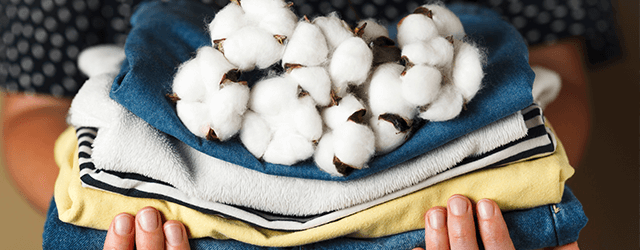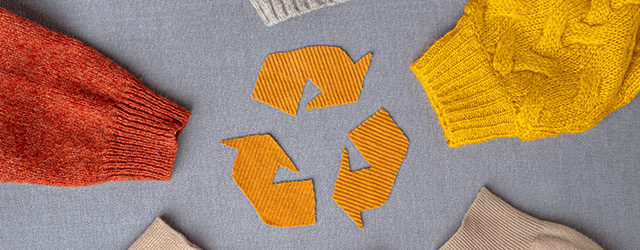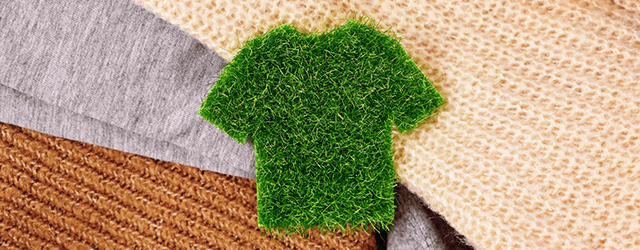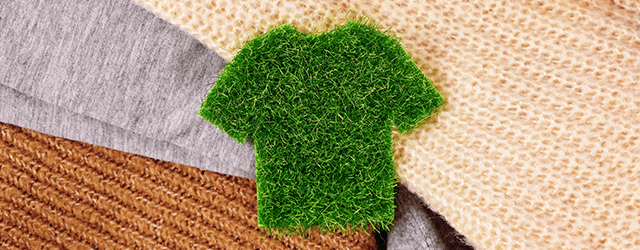Blog
Our tips for choosing eco-responsible clothing
How do I choose eco-responsible clothing?
05 JULY 2022
Our tips for choosing eco-responsible clothes
Would you like to incorporate eco-responsible clothing into your wardrobe but are a little confused⸱e how to go about it? Discover all our tips for making the right choices.

Avoid "fast fashion" brands
The first thing to do if you want to wear more eco-responsible clothes is to avoid fast fashion. These are not good quality. The textiles used and the production methods mean that fast fashion clothes often cannot be kept for many years.
> See also: Why choose an eco-responsible brand?
Better fashion consumption
When it comes to building a more eco-friendly wardrobe, adopting new habits is essential.
Choose labelled clothes
Some brands offering eco-responsible clothing collections feature one or more labels and/or standards. These allow consumers to see the efforts made by brands to improve the quality of their products and make their production more ethical.
At Elora, for example, we are working to implement the Reach standards. These allow better control of the quality of chemical products and their use.
> Read also: What are the eco-responsible labels?
Choose good quality, sturdy clothes
Choosing greener fashion means choosing better quality products. Quality can be appreciated through :
- the fabrics used (transparency, thickness) ;
- the quality of the finishing (seams, hems, buttons) ;
- the shape of the garment
- respect for size.
Choose renewable materials
What are the main materials to choose for eco-responsible clothing?
Organic cotton
Growing organic cotton requires less water and fewer chemicals than traditional cotton. Only natural fertiliser is used to grow organic cotton.
Other advantages of this type of farming include improved quality of life for farmers (their health is better protected) and reduced environmental impact.
> See also: Why choose organic cotton?
Flax
Linen is a natural fibre of which France is the world's leading producer. Linen is recyclable, biodegradable, hard-wearing, hypoallergenic, absorbent and comfortable. So don't hesitate to choose pieces in this material to improve the quality and durability of your wardrobe.
Vegetable leather
Having an eco-responsible wardrobe also means reducing your purchases of clothes and accessories made from animal raw materials. Plant-based leather allows you to keep rocking your look without involving animal suffering.
Depending on the brand, vegetable (or even vegan) leather can be made from pineapple fibre, grape marc, eucalyptus, rubber or cork, or synthetic materials.
Good to know: the expression "vegetable leather" is a bit of a misnomer. Basically, vegetable leather refers to leather that has undergone vegetable tanning.
H3: Recycled fibres
A little-known fact: polyester is one of the materials that can be recycled. This reuse reduces the pollution associated with this material. Another advantage of recycled polyester is that it can be washed at low temperatures, reducing maintenance costs.
Choosing an eco-responsible brand
There are an increasing number of brands offering some or all of their clothing collections in eco-responsible materials, like Elora. The best thing to do is to explore what's available and then select the brands that appeal to you most. The way the clothes are made, whether they are fair trade, the materials used and the style are all factors to be taken into consideration.
> See also: Why choose an eco-responsible brand?
Mais aussi...
Nos autres articles

Using less clothing
29 December 2022
Eco-responsibleHave you been wondering about your clothing consumption for some time now, and want to act...
Lire cet article
Eco-responsible fashion: a sustainable choice for Elora
17 May 2022
Eco-responsibleEco-responsibility is a key concern for many companies. Elora is part of this philosophy...
Lire cet article
Why choose an eco-responsible brand?
02 March 2022
Eco-responsibleFor some time now, you've been feeling the urge to consume better, particularly when it comes...
Lire cet article






 Lire cet article
Lire cet article